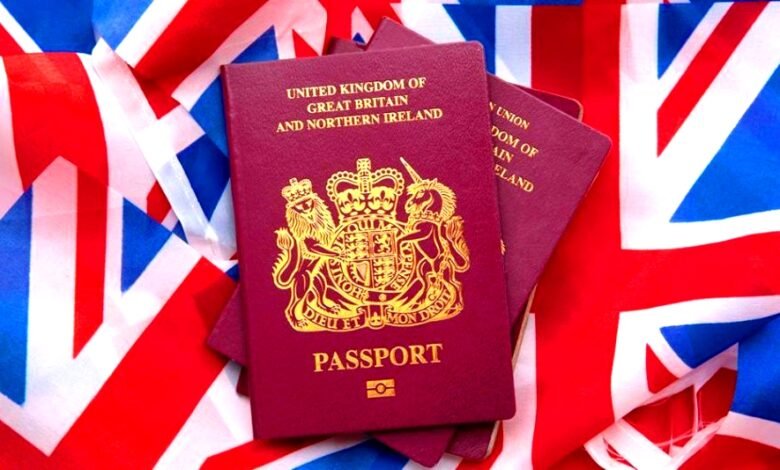Naturalization and British Citizenship Law in Northern Ireland
This article explores British citizenship law, focusing on naturalization processes, eligibility criteria, dual citizenship, and the impact of Belfast.

Understanding British Citizenship Law in Northern Ireland is essential for residents seeking to navigate the complex pathways to naturalization or clarify their citizenship status. Northern Ireland’s unique historical, political, and legal context, shaped by its position within the United Kingdom and its proximity to the Republic of Ireland, creates a distinct framework for citizenship. This article explores British Citizenship Law in depth, focusing on naturalization processes, eligibility criteria, dual citizenship, and the impact of the Belfast/Good Friday Agreement.
British Citizenship Law governs how individuals acquire, retain, or lose British citizenship. It is primarily outlined in the British Nationality Act 1981, which came into force on January 1, 1983, and applies to the United Kingdom, including Northern Ireland, as well as Crown dependencies and British Overseas Territories. This legislation establishes the criteria for citizenship by birth, descent, registration, or naturalization, ensuring a standardized approach across the UK.
In Northern Ireland, British Citizenship Law operates alongside unique provisions due to the region’s historical ties with Ireland and the Belfast Agreement of 1998. The agreement recognizes the right of people in Northern Ireland to identify as British, Irish, or both, impacting how British Citizenship Law is applied. This dual identity framework makes Northern Ireland a unique case within British Citizenship Law, as residents may hold British citizenship, Irish citizenship, or both without conflict.
Historical Context of British Citizenship Law in Northern Ireland
To understand British Citizenship Law in Northern Ireland, we must examine its historical roots. Before 1922, Ireland was part of the United Kingdom, and all individuals born on the island were British subjects under British Citizenship Law. The partition of Ireland in 1922, following the Irish War of Independence, created the Irish Free State (now the Republic of Ireland) and Northern Ireland, which remained part of the UK.
The British Nationality Act 1948 marked a significant shift in British Citizenship Law, recognizing the independence of former dominions like the Irish Free State. However, Irish citizens born before 1949 retained the right to claim British subject status, which could lead to British citizenship under specific conditions. In Northern Ireland, individuals born before January 1, 1983, were automatically granted British citizenship under British Citizenship Law, regardless of parental nationality.
The Ireland Act 1949 further clarified British Citizenship Law by ensuring that Irish citizens in the UK, including Northern Ireland, were not treated as aliens. This act established the Common Travel Area (CTA), allowing free movement between the UK and Ireland, which remains a cornerstone of British Citizenship Law in Northern Ireland.
Naturalization Under British Citizenship Law
Naturalization is a key pathway to British citizenship under British Citizenship Law, allowing foreign nationals or non-British nationals to apply for citizenship after meeting specific requirements. In Northern Ireland, the naturalization process is governed by the British Nationality Act 1981, administered by the Home Office.
Eligibility Criteria for Naturalization
To qualify for naturalization under British Citizenship Law, applicants must meet the following criteria:
- Residency Requirements: Applicants must have lived in the UK, including Northern Ireland, for at least five years, with no more than 450 days spent outside the UK during this period. They must also have indefinite leave to remain (ILR) or settled status for at least 12 months. If married to a British citizen, the residency requirement is reduced to three years, with no more than 270 days of absence.
- Good Character: Applicants must demonstrate good character, meaning no serious criminal convictions or breaches of immigration laws. The Home Office conducts thorough background checks to ensure compliance with British Citizenship Law.
- English Language Proficiency: Applicants must prove proficiency in English (or Welsh or Scottish Gaelic in some cases) through an approved test, unless exempt due to age or health conditions.
- Life in the UK Test: Most applicants must pass the Life in the UK Test, which assesses knowledge of British history, culture, and values. However, the British Nationality (Irish Citizens) Act 2024 exempts Irish citizens from this requirement.
- Intention to Reside: Applicants must intend to make the UK their permanent home, a requirement scrutinized under British Citizenship Law.
Application Process
The naturalization process under British Citizenship Law involves submitting Form AN to the UK Visa and Immigration (UKVI) service. Applicants must provide biometric information, including fingerprints and a photograph, at a local Post Office for a fee of £19.20. The application fee for naturalization is £1,206, subject to change.
Once approved, applicants aged 18 or over must attend a citizenship ceremony, where they take an oath or affirmation of allegiance to the monarch and a pledge to the UK, as mandated by British Citizenship Law. Successful applicants receive a certificate of naturalization, enabling them to apply for a British passport.
Dual Citizenship
British Citizenship Law permits dual citizenship, allowing individuals in Northern Ireland to hold both British and Irish citizenship without conflict. This is particularly significant given the Belfast Agreement’s recognition of dual identities. Irish citizens in Northern Ireland can apply for British citizenship through naturalization or registration without losing their Irish citizenship, and vice versa.
The British Nationality (Irish Citizens) Act 2024 simplifies this process for Irish citizens, allowing them to register as British citizens after five years of residency without taking the Life in the UK Test. This act addresses disparities in British Citizenship Law, as Irish citizens in Northern Ireland could previously access Irish passports more easily than British ones.
Impact of Brexit on British Citizenship Law in Northern Ireland
Brexit has significantly influenced British Citizenship Law in Northern Ireland. Before the UK’s withdrawal from the EU on January 31, 2020, British citizens, including those in Northern Ireland, enjoyed EU citizenship rights, such as free movement across EU countries. Post-Brexit, these rights were lost, but Irish citizens in Northern Ireland retained EU citizenship due to Ireland’s EU membership.
This disparity led to a surge in Irish citizenship applications from Northern Ireland residents, with applications rising from 54 in 2015 to 1,156 by 2021 in Britain (excluding Northern Ireland). British Citizenship Law continues to ensure that Irish citizens in the UK, including Northern Ireland, retain rights under the Common Travel Area, such as the ability to live, work, and vote in UK elections.
Special Provisions for Irish Citizens
Irish citizens enjoy unique privileges under British Citizenship Law due to historical ties and the Common Travel Area. Unlike other foreign nationals, Irish citizens born in the Republic of Ireland before 1949 can claim British subject status, granting them the right of abode in the UK and eligibility for British citizenship by registration.
The British Nationality (Irish Citizens) Act 2024 further enhances these privileges by allowing Irish citizens across the UK to register as British citizens after five years of residency, bypassing the Life in the UK Test. This reform, initially proposed for Northern Ireland residents, was expanded to all Irish citizens, reflecting the interconnectedness of British Citizenship Law and Irish nationality law.
Challenges and Criticisms
Despite its comprehensive framework, British Citizenship Law in Northern Ireland faces criticism. The high cost of naturalization (£1,206) and additional fees for biometric enrollment and passport applications create financial barriers. The requirement to renounce British citizenship for those identifying solely as Irish, as seen in the DeSouza case, has been criticized for undermining the Belfast Agreement’s spirit.
Moreover, British Citizenship Law’s automatic conferral of British citizenship to those born in Northern Ireland has raised concerns about restricting EU rights post-Brexit. Critics argue that this practice limits access to EU entitlements for Irish citizens in Northern Ireland, complicating their legal status.
Recent Developments
Recent changes to British Citizenship Law reflect ongoing efforts to address these challenges. The British Nationality (Irish Citizens) Act 2024 is a landmark reform, simplifying citizenship for Irish nationals. Additionally, the Home Office updated its good character guidance on February 10, 2025, stating that applications from individuals who entered the UK illegally will generally be refused, regardless of when the entry occurred. This change has sparked debates about its fairness, particularly for refugees.
The British Citizenship (Northern Ireland) Bill 2023-24, which evolved into the 2024 Act, received government support and aims to align British Citizenship Law with the principles of reciprocity and fairness in UK-Ireland relations. These developments demonstrate the dynamic nature of British Citizenship Law in responding to Northern Ireland’s unique context.
How to Apply for British Citizenship in Northern Ireland
For those seeking British citizenship in Northern Ireland, understanding the application process under British Citizenship Law is crucial. Here’s a step-by-step guide:
- Check Eligibility: Confirm you meet the residency, good character, language, and Life in the UK Test requirements.
- Gather Documents: Prepare proof of residency, ILR or settled status, identity documents, and evidence of English proficiency.
- Complete Form AN: Fill out the application form accurately, available on the GOV.UK website.
- Submit Biometric Information: Visit a Post Office to provide fingerprints and a photograph.
- Pay Fees: Pay the £1,206 application fee and any additional costs.
- Attend Citizenship Ceremony: If approved, attend a ceremony to take the oath or affirmation and receive your certificate.
Applicants can seek assistance from the Nationality Checking Service (NCS) run by local councils or consult immigration lawyers for expert guidance.
Conclusion
British Citizenship Law in Northern Ireland is a complex but vital framework that reflects the region’s unique historical and political landscape. From naturalization requirements to the Belfast Agreement’s dual identity provisions, British Citizenship Law offers diverse pathways to citizenship while addressing challenges like Brexit and dual citizenship. Recent reforms, such as the British Nationality (Irish Citizens) Act 2024, demonstrate the adaptability of British Citizenship Law to evolving needs.
Whether you’re a resident seeking naturalization or exploring your citizenship options, understanding British Citizenship Law is essential. By meeting eligibility criteria, navigating the application process, and staying informed about legal developments, you can successfully achieve British citizenship in Northern Ireland. For personalized advice, consult immigration experts or visit GOV.UK for official guidance.











